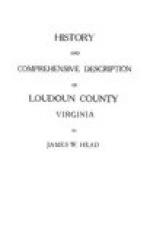The women, without question, had much the harder task. The men, in active service in the field, were reasonably sure that their families were safe at home and, in the feverish excitement of war, felt no concern for themselves, while, on the other hand, the women lived in hourly dread of direful news from the front, and, moreover, were burdened with labors and cares more irksome and harassing than had ever been borne by the absent males.
The music and songs that were popular just before and during the war attest the vacillating temper of the people. Joyous airs were at first heard, these growing contemptuous and defiant as the struggle approached, then stirring war songs and hymns of encouragement. But as sorrow followed sorrow until all were stricken; as wounds, sickness, imprisonment, and death of friends and relatives cast an ever-lengthening shadow over the spirits of the people; as hopes were dashed by defeat, and the consciousness came that, perhaps, after all the cause was losing, the iron entered into the souls of the people. The songs became sadder, while in the churches, where the doctrines of faith and good works were earnestly propounded, little else was heard than the soul-comforting hymns and the militant songs of the older churchmen. The promises were, perhaps, more emphasized and a deeply religious feeling prevailed among the home-workers for the cause.
Pierpont’s Pretentious Administration.
On December 7, 1863, the legislature of the “Restored Government of Virginia” held its first meeting in the chambers of the city council at Alexandria, which municipality became the seat of a Union administration in the Old Dominion, after Governor Pierpont’s removal from Wheeling, W. Va., where, by unqualified political trickery, he and his unauthorized following had effected the establishment of a new Union commonwealth out of the ruins of Confederate Virginia. Six senators were present, representing the counties of Norfolk, Accomac, Fairfax, Alexandria, and Loudoun, and the city of Norfolk. Prince William, Northampton, Alexandria, Loudoun, and Norfolk counties were represented by seven delegates. J. Madison Downey, of Loudoun, was elected speaker of the house of delegates.
This tiny mouth-piece of Virginia Unionists had naturally few important, or even ordinary, questions of legislation to decide. The most important was a provision for the amendment of the State constitution with relation to its bearing on the slavery question. “Everybody,” said Governor Pierpont in his message, “loyal or disloyal, concedes that slavery in the State is doomed. Then acting upon this concession, call a convention of loyal delegates, to alter the State constitution in this particular, and declare slavery and involuntary servitude, except for crime, to be forever abolished in the State.”




